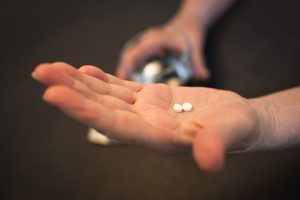 Depression is something that many people deal with on a day to day basis. It can be extremely debilitating, causing people to lose motivation, stop socializing, and ultimately be chronically unhappy. One of the most common treatments for depression, antidepressants or SSRIs, are effective for some, but for others, they just don’t work.
Depression is something that many people deal with on a day to day basis. It can be extremely debilitating, causing people to lose motivation, stop socializing, and ultimately be chronically unhappy. One of the most common treatments for depression, antidepressants or SSRIs, are effective for some, but for others, they just don’t work.
One brand of SSRI is made of escitalopram, which is supposed to boost your mood. However, some people need higher doses than others while there are some people who can’t benefit from SSRIs at all. Professor Magnus Ingelman-Sundberg at Karolinska Institutet wanted to find out why.
Advertisement
He found a gene that affects escitalopram therapy in patients, making them get less of it from the drug. This is why there is a lot of trial and error in escitalopram therapy – it takes awhile to figure out which dosage a person needs for it to be beneficial. To solve this, he wants to prescribe an amount of escitalopram that correlates to the individual’s gene makeup, as this would improve patient outcomes.
The study
Researchers identified genetic biomarkers that could predict a patient’s response to escitalopram. Changes in the gene responsible for escitalopram metabolism affects just how someone with depression responds to the drug.
A study found that people with this gene variant either had blood levels of escitalopram that were too high or too low to help the symptoms of. If the gene variant was defective, there would be too much escitalopram. If it promoted the enzyme expression, the levels were too low.
The study consisted of 2,087 people, of which one third had levels of escitalopram that were too high or too low. They also found that 30 percent of patients with this problem changed to a different drug to treat their depression symptoms within a year.
Advertisement
“Our study shows that genotyping of CYP2C19 could be of considerable clinical value in individualizing doses of escitalopram so that a better all-round antidepressive effect could be achieved for the patients,” says Professor Magnus Ingelman-Sundberg. “Because CYP2C19 is involved in the metabolism of many different SSRIs, the finding is also applicable to other types of antidepressants.”
Besides escitalopram, other approved antidepressants include citalopram, fluoxetine, paroxetine, sertraline, and vilazodone. If one treatment doesn’t work for you, work with your doctor until you find one that does.
Related: PTSD treatment, antidepressants linked to increased risk of dementia
